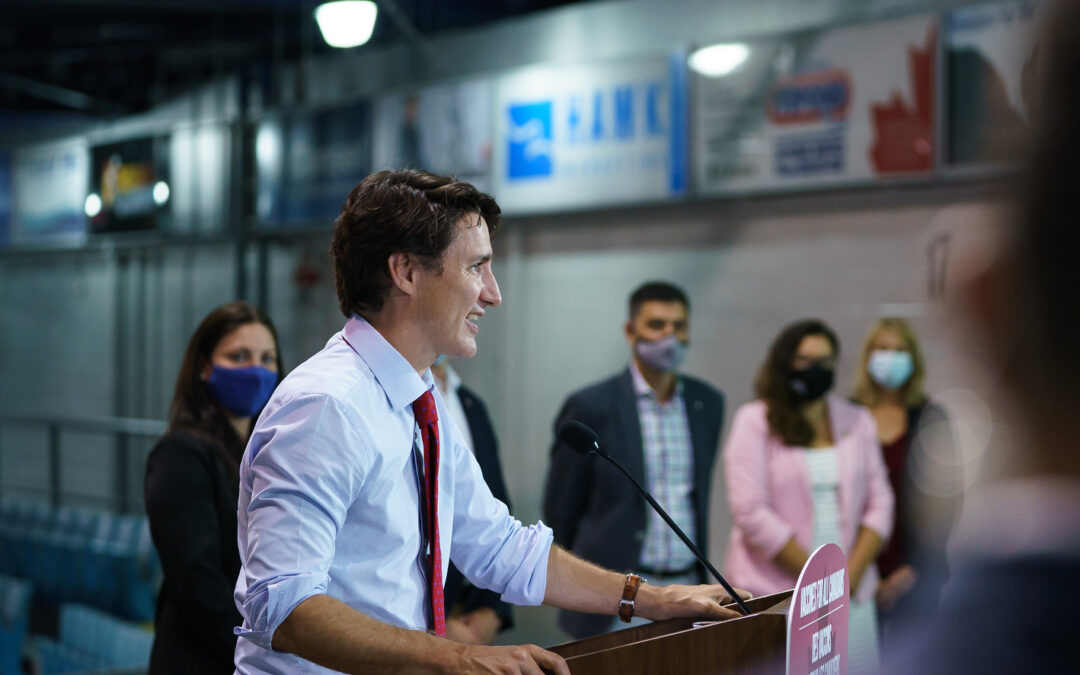Today, Prime Minister Justin Trudeau announced details on the national program for proof of vaccination certificates to be used for domestic and international travel.
While the “vaccine passport” will continue to be issued by each of the ten provinces and three territories, it will need to meet a common set of standards. This includes a common look with the Canada logo, a digital signature by the issuing province or territory, digital verification that doesn’t release any additional personal health information, and the ability to be stored on a phone or tablet. These standards have been agreed upon by all provinces and territories, and many are already issuing compliant certificates. The provinces that will soon need to update their proof of vaccination certificates to meet the new standards are British Columbia, Alberta, Manitoba, New Brunswick and Prince Edward Island.
These standardized proofs of vaccination will be relied upon when the government’s vaccine mandate for air travel and some marine and train travel comes into effect starting on October 30. They will also be used when travelling internationally, although the government cautioned that it was still up to Canadians to verify entry requirements – including whether the host country will be accepting mixed doses. The US recently announced that they will be accepting travelers vaccinated with mixed doses and all vaccines approved by the WHO – including AstraZeneca. Travellers will be required to upload their proof of vaccination certificate into the ArriveCAN app for digital verification ahead of international travel.
A full backgrounder on this announcement can be found here.
Pandemic Financial Supports
Joining the Prime Minister this morning was Deputy Prime Minister and Minister of Finance Chrystia Freeland, who announced an updated suite of programs intended to benefit persons and businesses negatively impacted by regional lockdown measures. These are designed to replace similar measures that will end on October 23, 2021. These include:
- A new Tourism and Hospitality Recovery Program to support related organizations such as bars, restaurants, festivals, tour operators, trade show organizers, and others with a subsidy of up to 75% for rent and wages if they experienced a revenue reduction of at least 40% over a specified qualifying period.
- A new Hardest-Hit Business Recovery Program to support wage and rent subsidies for organizations that do not qualify under the above program but have been affected by the pandemic. Organizations would need to show losses of at least 50% during the qualifying period to receive rent and wage subsidies up to 50%.
- Proposed legislative amendments to increase cap on the eligible expenses under the Canada Emergency Rent Subsidy.
- Extension of the Canada Recovery Hiring Program (CRHP) to May 22, 2022 with the possibility to extend until July 2, 2022.
- A Canada Worker Lockdown Benefit of $300/week in income for eligible workers who are unable to work as a direct result of a local government-imposed lockdown anytime between October 24, 2021 and May 7, 2022.
- Extension of the Canada Recovery Benefit and the Canada Recovery Sickness Benefit until May 7, 2022 with an increase in duration of benefits by two weeks.
Full details on the new targeted COVID-19 supports can be found here.
These new programs, at an estimated cost of over $7B, are being introduced under previous authority granted with the passage of the 2021 Budget and for the most part will not require new legislation. Opposition parties are likely to be critical of the government’s introduction of these significant changes without consultation in the House of Commons. However, with the House not set to resume until November 22, it will be another month before we hear any formal debate on these measures.
Pediatric vaccines
Also announced today, the Government of Canada has secured 2.9 million doses of pediatric COVID-19 vaccine which will be available for expedited delivery once Health Canada approves the vaccine. On October 18, Pfizer formally submitted for approval of this vaccine, for use by children aged 5-11. It is possible that the vaccine will become available in Canada before the end of the year.
As always, should you have any questions on any of today’s announcements do not hesitate to reach out to any of Counsel’s federal team.

